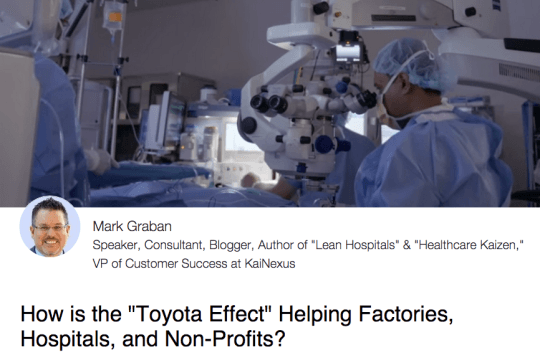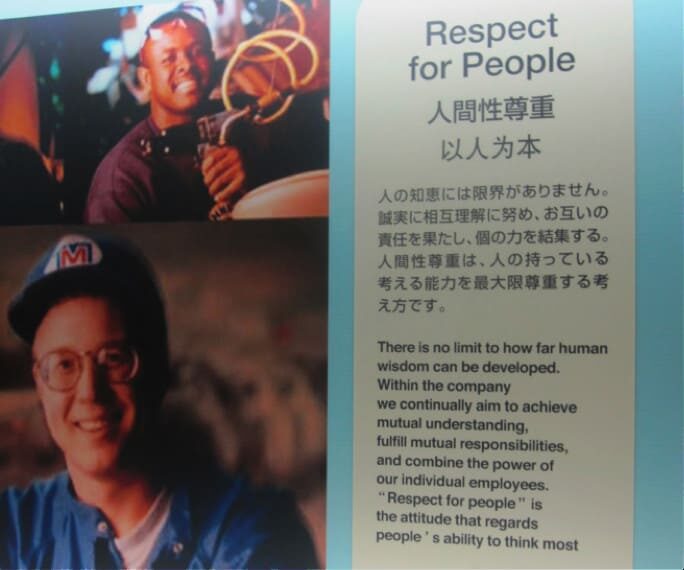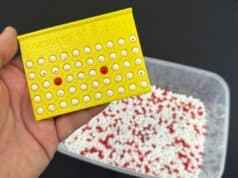I'm a big fan of Toyota's efforts to teach the Toyota Production System and Lean to others, including their efforts to help non-profits and important organizations that serve society. Much of this is done through the TSSC (the Toyota Production System Support Center, formerly the Toyota Supplier Support Center).
Toyota shared some compelling short films with me and I've written about three of them over on LinkedIn. You can also scroll down to read the entire article here on LeanBlog.org.

If you don't have access to LinkedIn at work, you can view one of the videos below (of course, if your organization blocks LinkedIn, they might also block YouTube, unfortunately):
You can also view their videos via their “The Toyota Effect” website.
I hope you'll check out the videos. Do you have any examples of using Lean or TPS to help non-profits in your community?
I've done some pro-bono work with Catholic Charities Fort Worth, teaching them daily Kaizen methods for continuous improvement. They've used Kaizen to help improve some of their service lines, including a group that provides van rides to those in needs. The drivers use their Kaizen process to suggest and implement ideas that allow them to provide more rides per day with the same precious resources.
As we see in the videos, Lean is very powerful, in many settings. We can use what we've learned with Lean and TPS to better serve society…
This post was created in partnership with Toyota. All opinions expressed in the post are my own and not those of Toyota.
Full Text:
When I was a kid, growing up around Detroit in the 1980s, I would have never guessed that Toyota would have such a strong influence on my career and life. When I started my career in the auto industry 20 years ago, I was fortunate to have mentors and a plant manager who had experience with the Toyota Production System, or what many call “Lean.”
One core pillar of the Toyota approach is what they call “respect for people.”
When I visit the local Toyota truck plant here in San Antonio, they express a desire to not just satisfy customers, but to have a positive impact on people (including their employees), society, and the environment (such as working to become a “zero-landfill” facility). I've long admired the way Toyota shares its approach, including helping to host tours of healthcare students, because of the impact that sharing can have on society.
Below is a photo that I took at a Toyota visitor center in Japan that explains “respect for people.” It's unusual for a company to truly respect the ability of all people to think and be creative. That's one reason I love teaching Lean and TPS to others.

Toyota shared with me that they have partnered with some acclaimed filmmakers to create a series of short films that documents some of the most impactful projects Toyota has embarked on in recent years, through a group called TSSC. Called “The Toyota Effect,” the films highlight the company's mission to share TPS for the betterment of people's lives.
There are three compelling videos that show how Toyota employees have helped a manufacturing company, a hospital, and a non-profit improve the way they do what they do and provide better service to customers using TPS. None of the three featured organizations build cars, but the impact of the Toyota style of improvement and management makes a meaningful difference. In my own career, I've moved from applying TPS in manufacturing to healthcare and I occasionally do pro-bono work with non-profits, so it's great to see this progression in those videos.
One video, “116 Innovators,” takes us to Ace Metal Crafts, a metal fabricator in Illinois where the stated goal is to have all 116 employees be problem solvers. In my experience, solving small workplace problems, through what we call kaizen, gives people the confidence and skills to not just be fulfilled and less frustrated in their work, but also to be innovative, as I've written about before. Beyond my own work in healthcare, I've heard organizations like Toyota and the University of Michigan Health System express a similar goal – everybody being problem solvers every day. Contrast that to the more typical organization that tells employees to “check their brains at the door” or to put any ideas into a suggestion box, where they get ignored.
Beyond engaging people's brains and creativity, Toyota shows “respect for people” by requiring the companies that they help, like Ace, ensure that nobody loses their job through their improvement activities. When I did healthcare consulting as a consultant with ValuMetrix Services, we insisted our clients make the same pledge. I teach the same idea to my clients today. It's not just respectful; it makes good business sense, as more healthcare CEOs are learning. A growing number of healthcare organizations are using Lean and TPS as an alternative to the traditional layoffs and cost cutting.
The second video, “Saving Sight,” really resonated with me because I've been doing similar work in healthcare for just over ten years now. Harbor-UCLA Medical Center asked Toyota to come help them because hundreds of ophthalmology patients were waiting for care, waiting for months. As were the folks at Ace, the healthcare professionals were skeptical that an automaker had something to offer them (I hear this skepticism all the time). The medical center said “we didn't know what was wrong” (to cause the patients to be waiting) “because sometimes when you work in chaos, you don't know how to get out of it.” Toyota taught them the basics, including how to observe their process to understand the process flow. I've found it to be very powerful to teach nurses and other healthcare professionals how to observe the work they normally do, helping them identify waste and develop solutions instead of being told what to do by an outside expert. Harbor-UCLA Medical Center was proud that they eliminated the patient backlog – an improvement that could mean the difference between a patient going blind and having their sight saved.
I've done similar work, using Toyota principles and methods to reduce delays in healthcare. Hospital laboratories have very often reduced turnaround times for test results from 50 to 70%, using methods similar to what was showed in that last video. I helped a children's hospital reduce waiting times for an outpatient MRI from 12 to 13 weeks down to just 2.5 weeks. We did this by respecting and engaging the people who did the work, redesigning the physical layouts and workflows that had previously frustrated them. When TPS and Lean become a management system, not just a project, the results are sustained and improvement continues over time.
In a third video, Toyota shares how they helped the St. Bernard Project (SBP), a non-profit that has been helping rebuild houses in New Orleans after Hurricane Katrina. Many organizations, including those I work with in healthcare, are uncomfortable talking about problems. Often, employees fear being blamed for speaking up or pointing out a better way. But, as the Toyota expression goes, “No problem is a problem.” As part of the typical TPS culture shift, TSSC helped SBP get comfortable talking about problems, realizing that throwing more people and more money at problems doesn't always lead to solutions. It used to take 116 days for SBP to rebuild a house, now it's 61 days. Again, we see the common Lean theme of reducing lead time and delivery to customers.
A 1997 FORTUNE article talked about “the soul of Toyota.” That might seem a bit silly, but I've learned, in my 20 years in the working world, that TPS and Lean aren't just about tools, numbers, and logic. There's a philosophical and emotional connection that matters. It's an approach that engages and inspires, tapping into people's desire to be creative and better serve their customers, their company, and their communities.
What do you think? Please scroll down (or click) to post a comment. Or please share the post with your thoughts on LinkedIn – and follow me or connect with me there.
Did you like this post? Make sure you don't miss a post or podcast — Subscribe to get notified about posts via email daily or weekly.
Check out my latest book, The Mistakes That Make Us: Cultivating a Culture of Learning and Innovation:










Hi Mark,
Would you be able to write a few posts (if you haven’t already) regarding your pro bono charity work? Challenges, how it’s different, what works, etc? I know myself and a few others who would be interested.
Thanks!
Sure. I can get some reflections from the people at Catholic Charities Fort Worth sometime in the near future as a way to help tell that story.
Boeing’s lean folks have had some long-standing involvement with the Puget Sounds Blood Bank. I also have heard that tours of Boeing played a role influencing leaders at Virginia Mason to start exploring lean.
Yes, Boeing gets a lot of credit from Virginia Mason folks. A former Boeing exec, Carolyn Corvi, is on the VMMC board. We need to see more collaboration like this across industries in communities across the U.S. (and around the world).
[…] can be of benefit to the patients when waiting times are reduced (also see the example of how Toyota helped UCLA-Harbor reduce waiting times for patients who were otherwise going blind while […]
[…] are the ones that did the great work with UCLA Harbor Medical Center and others, as highlighted in “The Toyota Effect” videos and earlier work with the NYC Food […]